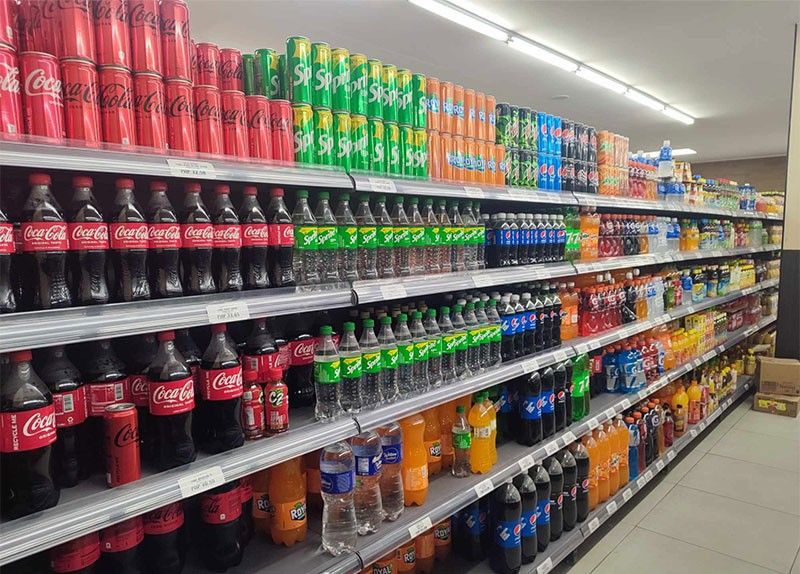Tax on sugary drinks needs adjustment — think tank

MANILA, Philippines — The government should consider modifying the rates on sugar-sweetened beverages (SSB) as the tax measure has weakened since its implementation.
According to the latest policy brief of the Congressional Policy and Budget Research Department (CPBRD) of the House of Representatives, the initial impact of the SSB tax has diminished due to sustained inflation and ever-changing market dynamics.
As part of the tax reform package of the Duterte administration, the Philippines in 2018 began slapping a P6 per liter tax on SSBs made with caloric or non-caloric sweeteners as part of efforts to curb obesity in the country.
It also included a P12 per liter tax on those made with high-fructose corn syrup. The two-tiered levy resulted in at least 13 percent to as much as 26 percent increase in the cost of beverages.
Six years later, however, CPBRD said the demand response to the SSB tax has declined over time which means that its capacity to elicit desirable health outcomes is likely only in the short-term.
When it was passed, the SSB tax was aimed at decreasing the consumption of harmful sugary drinks and reducing the rising prevalence of obesity, diabetes and cardiovascular diseases while generating revenues for the government.
“SSB consumption remains robust several years after the implementation of the tax. The sales volume of SSBs such as carbonates, juice drinks, ready-to-drink teas, energy and sports drinks and concentrates posted appreciable annual increases in recent years,” the think tank said.
In fact, the growth rate was registered at 4.2 percent during the pandemic and a higher 4.4 percent last year even with the problem of elevated inflation.
CPBRD explained that rising incomes are making households less sensitive to price hikes as they can absorb nominal increases in the price of SSBs so long as their wages are also growing.
This is especially true as a huge portion of the population falls under the working age category.
“The present formulation of the SSB tax is neither discouraging the consumption of SSBs nor optimizing potential tax collections,” it said.
As such, CPBRD suggested that the tax rates be adjusted to enhance the effectiveness of the measure over time.
It argued that increases in the SSB tax rate have the potential to nudge consumer behavior toward healthier options and also provide a substantial hike to government revenues.
One taxation strategy is to modify the rates based on a fixed inflation adjustment or on the level of accumulated inflationary pressure.
This could yield as much as P42.32 billion next year compared to the P30.71 billion estimated from the status quo.
CPBRD said a second policy option is to modify it to ad valorem tax which is a levy based on the value of the product.
An ad valorem tax automatically adjusts with price increases due to inflation and therefore maintains the intended potency of the tax over time.
This could also increase the overall tax take to around P39.94 billion in 2025.
In June last year, former Finance secretary Benjamin Diokno floated the idea of an expanded levy on SSBs.
Finance Secretary Ralph Recto, however, has maintained that he will not push for higher taxes on SSBs.
- Latest
- Trending































